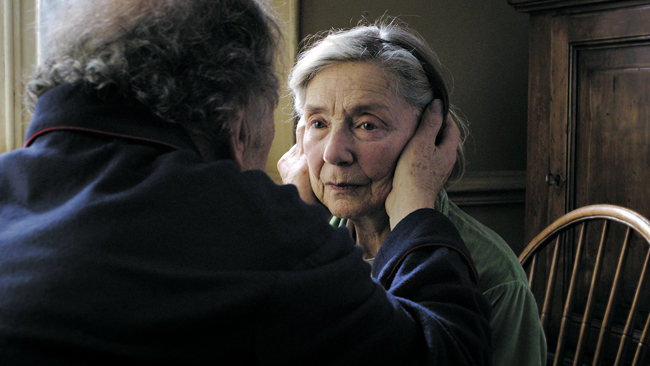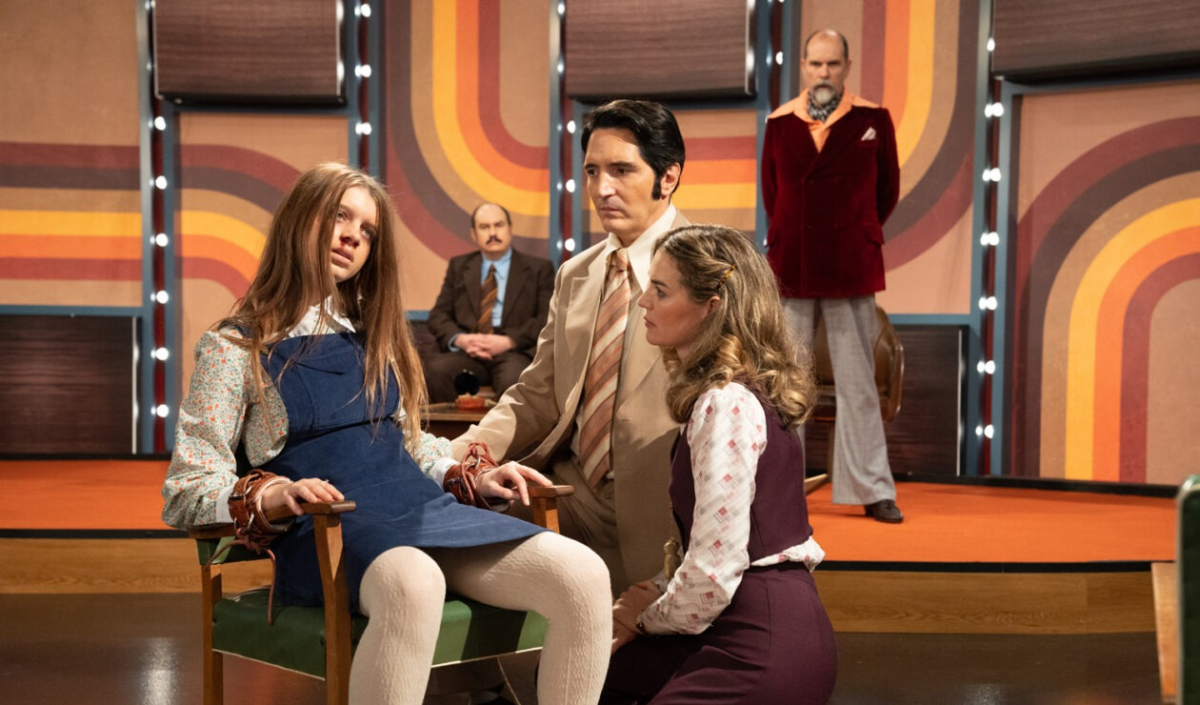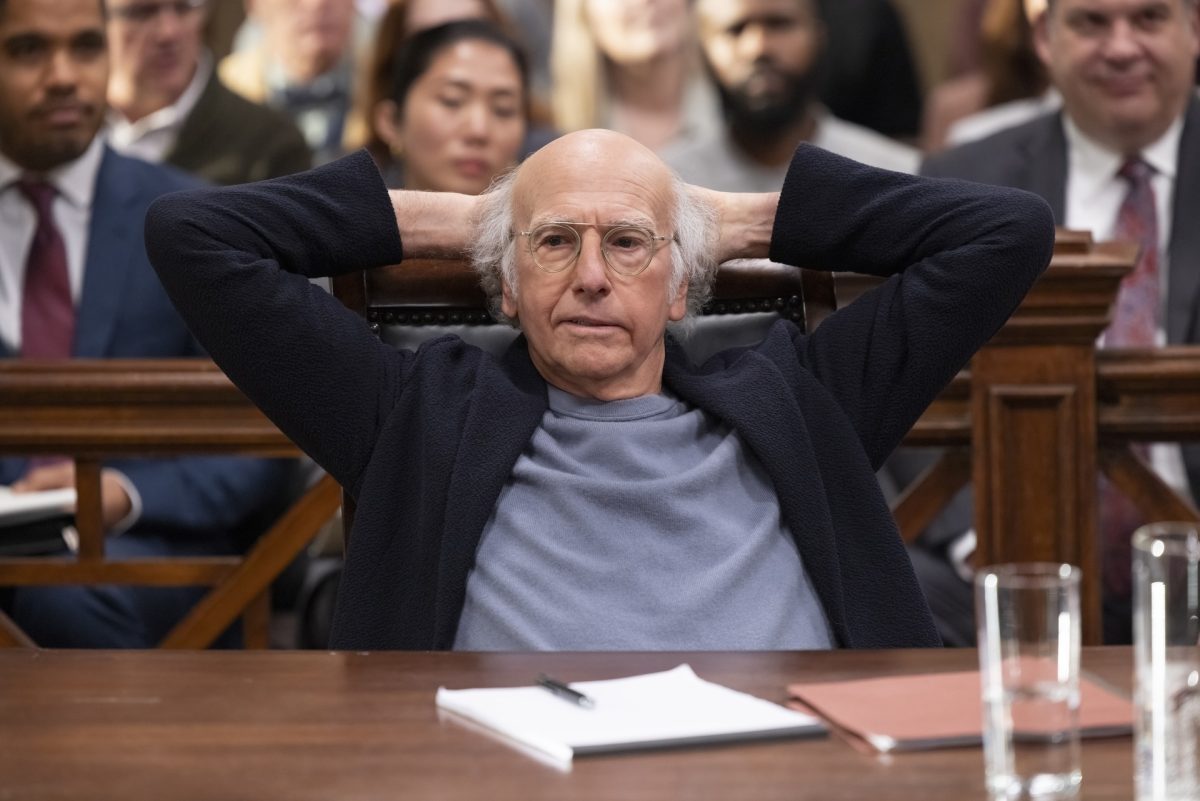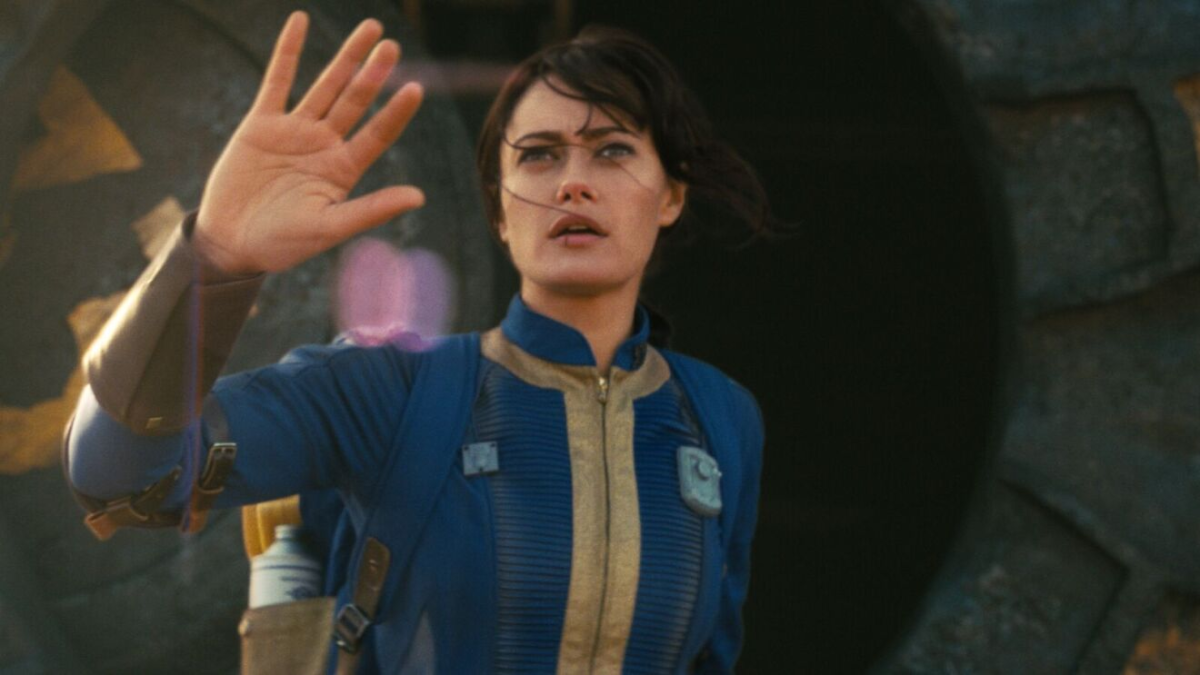It’s no secret that the voting members of the Academy of Motion Picture Arts and Sciences skew toward the elderly, which makes it something of a surprise that they nominated “Amour,” a glaring reminder of human mortality, for five Oscars earlier this month. For viewers of any generation, “Amour” could be considered a horror film, a paralyzing look into the future that could be awaiting any one of us. However, “Amour” is more than deserving of acclaim, as it tells the story of a couple fading into their twilight with brutal honesty.
Elderly couple Georges (Jean-Louis Trintignant) and Anne (Emmanuelle Riva) have settled into a happy life after retirement, living in an upscale apartment with occasional visits from former students and their daughter (Isabelle Huppert). Once Anne’s age starts to catch up with her, first with a catatonic episode over breakfast and then with a series of increasingly debilitating strokes, Georges finds himself acting as her main caretaker.
Director Michael Haneke very rarely plays in such blatantly emotional arenas, but his unsentimental approach is perfectly matched to the tragic romance unfurling in the film. Haneke etches his characters and their relationship very carefully, building an unmatchable intimacy between “Amour”’s central couple. Once Anne starts to fall ill, it is clear that Georges’ only response (and the only one that he even considers) is to take care of her, to nurse his wife until the inevitable occurs. Haneke stages the occasional punchy sequence, especially in an opening scene that sets a somber tone for the rest of the film, but for the most part, “Amour” shines for its director’s restraint and strength.
The film is mainly a duet between leads Jean-Louis Trintignant and Emmanuelle Riva, and the two give remarkable, heartrending performances. Trintignant stands out as the steadfast Georges, unwavering in his devotion even as his wife spirals, and he is especially good at finding the perfect note to milk maximum devastation out of the audience.
Riva, the oldest Best Actress nominee ever, has a more challenging role. Watching her become increasingly unrecognizable and ragged hits right in the gut for anyone who has watched a grandparent or loved one deteriorate from old age. Even with the restraints of her character’s physical state, Riva masterfully communicates the sensation of being betrayed by her own body.
It’s no stretch to say “Amour” is not exactly a fun film to watch. In fact, the crushingly honest and recognizable approach to its subject matter may send some running for the hills. However, it is an impeccably directed and acted film, and even when it’s hard to love, it’s impossible not to recognize the level of craft on display. Haneke has put together a film that devastates just as aptly as it impresses, and for those that can stomach it, “Amour” is a moving exercise in nobility, tragedy, and devotion.
Published on January 25, 2013 as "'Amour' takes stark view on love and aging".





















